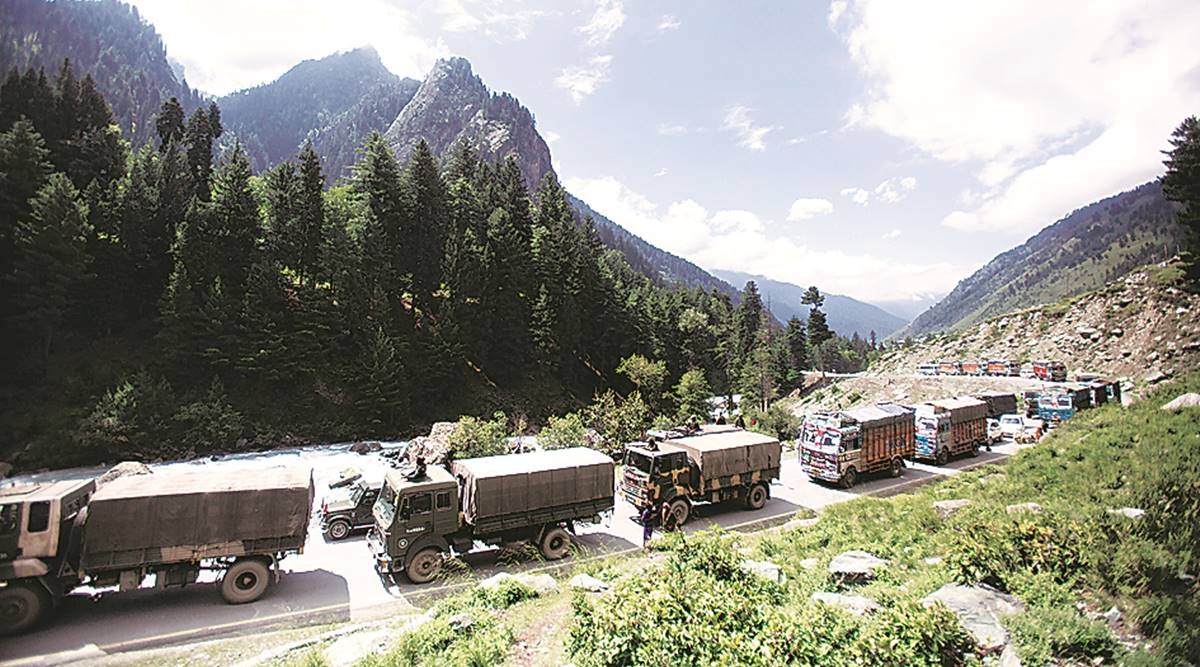 However, there was no word on whether an agreement was reached for disengagement from any of the outstanding friction areas. (File picture of for representation)
However, there was no word on whether an agreement was reached for disengagement from any of the outstanding friction areas. (File picture of for representation) There was no breakthrough for disengagement from Hot Springs in the 14th round of Corps Commander level talks between India and China on Wednesday, but the two sides have agreed to meet again soon. Sources said that even though there was no agreement, the talks were in the positive direction.
The two sides issues a joint statement on Thursday, saying that they would consolidate earlier outcomes and stay in close contact. It brings relief from the last round of talks in October, which had ended in a stalemate. There was no joint statement, and the two sides had issued independent statements blaming each other for the situation.
The joint statement mentioned that “representatives from the defense and foreign affairs establishments of the two sides were present at the meeting” and they had “a frank and in-depth exchange of views for the resolution of the relevant issues” along the Line of Actual Control in the Western Sector.
Both sides “also agreed to consolidate on the previous outcomes and take effective efforts to maintain the security and stability on the ground in the Western Sector including during winter” and to “stay in close contact and maintain dialogue via military and diplomatic channels and work out a mutually acceptable resolution of the remaining issues at the earliest” the statement said. It mentioned that in “this context it was also agreed that the next round of the Commanders’ talks should be held at the earliest”.
Further, it stated that the two sides “agreed that both sides should follow the guidance provided by the State Leaders and work for the resolution of the remaining issues at the earliest. It was noted that this would help in restoration of peace and tranquility along the LAC in the Western Sector and enable progress in bilateral relations.”
For the meeting, which took place on the Chinese side of the Chushul-Moldo border personnel meeting point, the Indian delegation was led by Lt Gen Anindya Sengupta, who had taken over as the commander of the Leh-based XIV Corps last week. For China, Maj Gen Yang Lin, commander of South Xinjiang Military district led the delegation. It was the first time that the two officers were leading the negotiations for their respective sides.
The delegations from both sides also included officials from their foreign ministries, as has been happening so far.
Speaking to journalists on Wednesday, Army Chief General MM Naravane had expressed hope for resolution of PP15 (Hot Springs). Once that is done, he said, “we will go on to the other issues which pre-date the current standoff, we are hopeful that too we will get resolved from time to time.”
The two other unresolved points are Depsang Plains, where Chinese troops are blocking Indian soldiers from accessing their five traditional patrolling points; and Demchok, where some so-called civilians have pitched tents on the Indian side of the Line of Actual Control.
However, he had stated that “while we say that, while there has been partial disengagement, the threat has in no way reduced.”
The Army Chief called the ongoing talks a “good thing” as it shows “that we can resolve our differences through dialogue, and that is why this mechanism is very important”. Calling it “unreasonable” to expect an outcome after every round of discussions, he said that a “number of rounds will be required to deal with this situation and resolve them, one at a time.”
The eventual de-escalation, and de-induction of troops from the region can only happen after a certain amount of trust is built between the two sides based on disengagement from the friction areas, Naravane had said.
Reacting to some of Naravane’s comments, Spokesperson for China’s Foreign Ministry Wang Wenbin said on Thursday that “at present” the two countries are “in dialogue and communication through diplomatic and military channels to ease the situation at the border” and added, “we hope that certain individual on the Indian side would refrain from making unconstructive remarks.”
Since the standoff began in May 2020, the two sides disengaged from PP14 in Galwan Valley in June 2020, from north and south banks of Pangong Tso and Kailash heights in Chushul sub-sector in February 2021, and from PP17A in Gogra Post in August.
- The Indian Express website has been rated GREEN for its credibility and trustworthiness by Newsguard, a global service that rates news sources for their journalistic standards.

